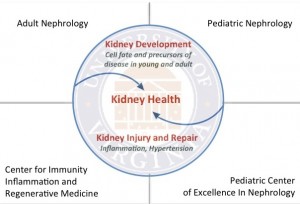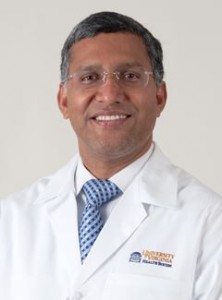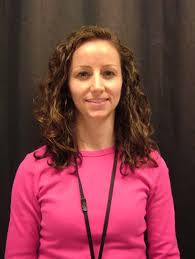Research
 Division of Nephrology and Center for Immunity, Inflammation & Regenerative Medicine
Division of Nephrology and Center for Immunity, Inflammation & Regenerative Medicine
RESEARCH
The Division of Nephrology and the Center for Immunity, Inflammation & Regenerative Medicine (CIIR) are at the forefront of basic and translational research in kidney disease, immunity, autoimmunity, inflammation and regenerative medicine. Together, they have generated more than $20 million in research and training awards over the last five years.
The CIIR, established in 2007, facilitates the transition of immunological concepts underlying human disease to clinical trials. Research labs for both the division and the CIIR are housed in approximately 18,000 square feet of renovated, state-of-the-art space in Jordan Hall, and in the Old Medical School. The center serves as an important training ground for undergraduate, graduate and medical students, and postdoctoral fellows and visiting scientists in nephrology and allied fields. The division has internationally recognized research programs including:

- Acute kidney injury.
- Progressive fibrosis.
- Pericyte biology.
- Sphingolipid signaling in kidney disease.
- Adenosine receptor signaling in kidney disease.
- Therapeutic pulsed ultrasound in inflammatory conditions.
- Goodpasture syndrome.
- Genetics of hypertension.
- Pathogenesis of lupus nephritis.
- Biology of natural killer cells.
- Dendritic cell and macrophage biology in kidney disease.
- Immunolobiology of transplantation.
Biostatistical support for division research is provided in part by Jennie Ma, PhD, who has a joint appointment in the Division of Nephrology and the Department of Public Health Sciences. Helen Cathro, MB, ChB, of the Department of Pathology and Jing Yu, PhD, of the Department of Cell Biology also have secondary appointments in the Division of Nephrology.
Recent Funding Success
With the shrinking of National Institutes of Health (NIH) dollars, younger faculty members have to work harder than ever to secure research support, so it is particularly noteworthy that assistant professors Amandeep Bajwa, PhD; Gilbert Kinsey, PharmD, PhD; and Uta Erdbrügger, MD, were able to obtain NIH career development awards, and that Sundar Swaminathan, MD, won his first R01.
In FY 2015, the faculty and fellows in the Division of Nephrology and CIIR were recipients of the following new awards: one R21, two R01s, one K23, one NIH F32 and a Coulter Award. In addition, several other grants received exceptional or outstanding scores. All together, the division anticipates that it will receive over $10 million in new awards over the course of the 2015–2016 fiscal year.
Highlights
Uta Erdbrügger, MD, assistant professor of medicine, received an NIH K23 Career Development Award (NIH 1K23HL126101) for her research project entitled “Circulating and Urinary Microparticles as Markers of End-organ Damage in Hypertension.” This award will allow Dr. Erdbrügger to transition to independent research under the mentorship of Thu Le, MD. The project focuses on developing an innovative tool that will identify patients at risk for kidney disease from hypertension prior to development of end organ/kidney injury.
Sundararaman Swaminathan, MD, associate professor of medicine, received his first NIH award (NIH 1R01DK103043-01A1) for his research project titled “Targeting Cellular Iron Dynamics for Protection in Kidney Injury.” His research has profound implications in the pathogenesis of cellular injury and also provides insight into novel therapeutics.
Shu Man Fu, MD, and Rahul Sharma, PhD, associate professor of medicine, PI and co-investigator, respectively, received a three-year research grant from the Alliance for Lupus Research (IL2 and IL33 as therapeutic agents for lupus nephritis) to study a novel hybrid cytokine, IL-2/IL-33, as a therapeutic agent in lupus nephritis. The novel cytokine was synthesized by Dr. Sharma, and its effectiveness was tested in preliminary experiments on the lupus nephritis model NZM2328 and on an INFalpha-accelerated SLE model. This novel cytokine has demonstrated efficacy for treatment of other renal conditions besides lupus, including ischemic perfusion injury and diabetes mellitus. The research team hopes to show that this new therapeutic agent can be used in conjunction with standard disease-modifying agents to treat a variety of autoimmune diseases.
Training Research Highlights
CIIR Research Associate Chao Dai Wins the Shyr-Te Ju Award at Research & Scholars Day
Chao Dai, a postdoctoral associate in the lab of Shu Man Fu, MD, was the recipient of the Shyr-Te Ju Award for his poster presentation, “Cgnz1 Allele protects kidneys from ischemia/reperfusion injury,” at the Department of Medicine’s 2015 Carey-Marshall-Thorner Research & Scholars Day, held on May 6. This is the second year in a row that a Division of Nephrology/CIIR trainee has won this award.
Shyr-Te Ju was a preeminent immunology researcher at the University of Virginia who made numerous contributions to cellular and molecular immunology, especially in the pathogenesis of autoimmune diseases. A research award established in Ju’s honor is given annually at Research & Scholar’s Day for the best poster on immunology research.
A key aspect to the division’s research and training effort is the continued success of its NIH T32-sponsored kidney disease and inflammation work. In the first 10 years, the division has been successful in developing new investigators who are well on their way to independent investigative careers in kidney research. In the current cycle, the division is cognizant of challenges that face the future of nephrology clinical practice and research. In response, it has made changes to strengthen its program as well as to meet future challenges. Accordingly, in the division’s recently submitted competitive renewal, it proposed to incorporate Pediatric Nephrology and the NIH-funded Pediatric Center of Excellence in Nephrology (PCEN) (PI: R. Ariel Gomez, MD) into a combined adult and pediatric training program.
Trainees
Heather Perry, PhD, postdoctoral fellow in Dr. Okusa’s laboratory, was recently awarded the American Society of Nephrology’s Ben J. Lipps Award for a project entitled “Endothelial sphingosine-1-phosphate receptor 1 regulates renal recovery after acute kidney injury.” Perry was awarded an NIH F32 (postdoctoral fellowship award from NIH). Her results demonstrate the critical role that S1P1 receptors play in kidney recovery after ischemia-reperfusion injury.
The Young Investigator’s Forum (YIF) sponsored by the National Kidney Foundation (NKF) holds regional meetings at which trainees present research (basic or clinical) to a panel of judges, who follow-up with questions for the trainees after their presentations. This year, the division sent its trainees to two different locations: Baltimore, for the Mid-Atlantic Young Investigator’s Forum, jointly run by the division’s Mitchell Rosner, MD, FACP, and Michael Choi, MD, of Johns Hopkins; and New Orleans, for the Southern Young Investigator’s Forum, run by Paul Sanders, MD, of the University of Alabama, Birmingham. Our trainees did extremely well. Each event had about 20 trainees who participated, representing 15 different institutions. Ten UVA winners will go on to the national NKF clinical meetings later this month in Dallas and compete against winners from other regional meetings.
Mid-Atlantic Young Investigator’s Forum Results: UVA Placement
Clinical Research
- First Place: Gabor Bodonyi-Kovacs, MD (Le Lab)
Basic Research
- First Place: Eugene Lin (Ariel Gomez Lab, Pediatric Nephrology)
- Second Place: Heather Perry, PhD (Okusa Lab)
- Fourth Place: Tsuyoshi Inoue, MD (Okusa Lab)
- Fifth Place: Yan Hu (Jing Yu’s lab, Cell Biology)
Southern Young Investigator’s Forum Results: UVA Placement
Basic Research
- Second Place: Isaah Vincent, PhD (Okusa Lab)
- Third Place: Pei-Lun Chu, MD, PhD (Le Lab)
- Fourth Place: Marta Stremska (Sharma Lab, UVA)




